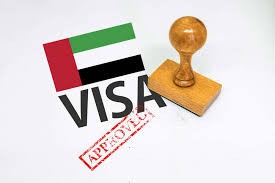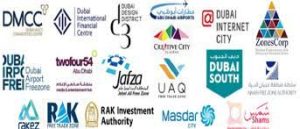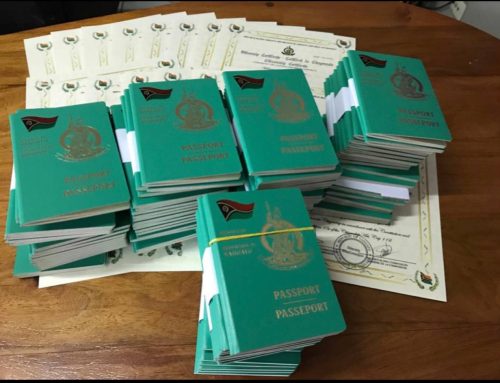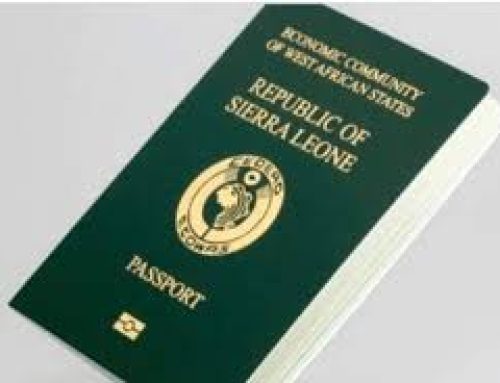The United Arab Emirates (UAE) offers two visa options for people who want to live and work remotely in the country: the digital nomad visa and the freelancer visa. Both visas offer similar benefits, but there are also some important differences that you should consider when choosing which visa is right for you.
Eligibility
Digital nomad visa
The digital nomad visa is open to employees and self-employed people. Entrepreneurs must prove that they have owned their business for at least a year and provide bank statements from the last three months. The visa also requires proof of high income, typically at least £4,420 ($5,000) per month. Digital nomads are not allowed to work directly with companies in the UAE.
Freelance visa
The freelancer visa is primarily intended for self-employed people. Depending on the type of visa, less stringent income requirements may apply. Freelancers are allowed to work with companies based in the UAE.
Visa duration and renewability
Digital nomad visa
The digital nomad visa is usually valid for one year and cannot be extended. It is intended for people who want to work and travel in the UAE for a shorter period of time.
Freelance visa
The freelancer visa is usually valid for two or three years and can be extended. It can pave the way for successful entrepreneurs to obtain permanent residency in the UAE.

restrictions
Digital nomad visa
Digital nomads are not allowed to take on local clients or create jobs in the UAE. You also have limited opportunities to build a professional network within the UAE.
Freelance visa
Depending on the type of visa, there may be restrictions on the type of work you can do. Freelancers must also comply with UAE business regulations and taxes.
Variants of setting up a business in the UAE
In addition to the two visa options for digital nomads and freelancers, there are also different ways to start a business in the UAE. The best option for you depends on your individual situation and goals.
Setting up a business in the UAE
If you want to start a business in the UAE, you must first set up a local company. There are different types of companies you can choose, including:
General partnership (JSC): A JSC is a joint stock company that must be founded by at least three people.
Closed Company (LLC): An LLC is a limited liability company that can be formed by at least two people.
Sole proprietorship: A sole proprietorship is a business that is run by one person alone.
Advantages of starting a business in the UAE
Setting up a business in the UAE offers a number of benefits including:
- Access to a large and growing market
- Tax benefits
- The possibility of obtaining a residence permit in the UAE
Disadvantages of starting a business in the UAE
Setting up a business in the UAE can also come with some disadvantages, including:
- Complex business regulations
- High start-up costs
- The need to maintain a local office
Conclusion
Deciding which visa or business formation option is right for you depends on your individual circumstances. If you want to start a business, you should first consult to find the best option for you.
Further considerations
When choosing the right visa for your needs, you should consider the following factors:
Cost: The cost of applying for a visa can vary depending on the type of visa and processing time.
Documentation: Both types of visa require certain documents, such as: E.g. proof of income, proof of health insurance and a passport. However, the exact requirements may vary.
What is to be considered?
Digital Nomad Visa: This visa is ideal for high-earning remote workers looking for a temporary base in the UAE to explore the country while working for their clients abroad.
Freelancer Visa: This visa is suitable for self-employed individuals who want to work with clients in the UAE and may be planning a longer-term career in the country.
advices
It is important to consult a qualified immigration specialist to determine the best visa option for your specific circumstances and to ensure you meet all requirements. An immigration specialist can also provide you with the latest information on visa fees, processing times and any changes to visa requirements.
Alternative visa options
Alternatively, you can also apply for a work permit visa. This visa allows you to work in the UAE for a company based in the UAE. However, the requirements for a work permit are stricter than for a digital nomad visa or a freelancer visa.
Travel agencies
There are travel agencies that have connections with the state tourism agency DTCM and can issue teleworker visas on your behalf. These travel agencies can help you apply for a visa and provide you with the latest information on visa requirements.
Starting a Freelancing Business in Dubai:
Mainland vs Free Zones
The United Arab Emirates (UAE) offers a number of options for starting a freelance business, including setting up on the mainland or in a free trade zone (FTZ). Each option has its own pros and cons that are important to consider before making a decision.
Foundation on the mainland
Advantages:
Direct access to the local market: Companies established on the mainland have direct access to the local market and can work with local customers. This can lead to a strong presence in the UAE market.
Wide range of activities: Mainland companies are not bound by specific industry restrictions and can therefore offer a wide range of services.
No restrictions on foreign ownership: In most cases, local sponsors are not required for mainland freelance businesses.
Disadvantages:
Higher start-up costs: Starting a business on the mainland typically involves higher costs, including licensing fees, office rent and visa costs.
More complex procedures: Setting up a business on the mainland requires dealing with more bureaucratic processes and obtaining various licenses and permits.
A local sponsor may be required: Some mainland jobs require a local sponsor, including freelancers.

Establishment in a free trade zone
Advantages:
Simplified setup: Free zones offer streamlined procedures and less paperwork compared to the mainland, making it quicker and easier to set up your business.
Tax Benefits: Free trade zones typically offer various tax benefits, including exemptions from corporate tax, import duties and VAT.
100% Foreign Ownership: Free trade zones generally allow full foreign ownership of companies, eliminating the need for a local sponsor.
Disadvantages:
Limited access to the local market: Companies incorporated in a free trade zone may have limited access to the local market and must take additional steps to engage with local customers.
Restricted Activities: Some free zones have specific industry restrictions. Therefore, it is important to ensure that your business activities are permitted within the selected zone.
Renewal and visa fees: Certain free zones incur annual renewal fees and visa requirements, which may increase ongoing costs.
Which option is right for you?
The best choice for your freelance business depends on your specific needs and priorities. Here are some factors you should consider:
Target Market: If your primary focus is local customers, the mainland may be a better option. An FTZ could be beneficial for international customers.
Budget: Setup costs tend to be higher on the mainland, while free zones offer tax benefits that can offset ongoing costs.
Doing Business: Make sure your desired business activity is permitted in your chosen location, whether on the mainland or in the free zone.
Professional advice
It is always recommended to consult a professional business formation consultant in Dubai who can analyze your specific situation and provide personalized recommendations based on your business goals and budget.
Tips for Choosing a Business Startup Consultant:
Always check a consultant’s qualifications and experience before working with them.
When consulting, be clear about your specific needs and requirements.
Get quotes from multiple advisors before making a decision.
——————–
TCME – Group worldwide is a leading professional international foreign trade relations investment and consulting firm, with 17 different departments spread in different countries around the world, with its head office in Malaysia.
We’ve helped thousands of people take their businesses abroad, legally reduce their taxes, and become dual citizens. We focus on high-net-worth individuals and their families as well as businesses, where we design and implement bespoke, holistic strategies for successful investors and entrepreneurs to legally reduce their tax burden, diversify and protect their wealth, invest abroad, a second citizenship and to live a freer life worldwide.
Another special area of our full-service consulting is the investment opportunity and solution in Europe, especially in the Balkans, Africa, Asia, the United Arab Emirates, the Caribbean and the Pacific.
Our legal team and our 200+ multi-disciplinary team have more than 25 years of global experience in the different Consulting Areas. Governments as well as the super-rich trust in our expertise in consulting. If you are looking for it, please feel free to contact us. We create a holistic plan that serves your purpose.
YOUR CHANCE FOR A BETTER LIFE
Our range of services includes:
- Offshore and Onshore Company Formation,
- executive Search,
- IT & Cyber Security Protection
- international Business & Management Consulting
- Citizenship & Residency
- Investments & Corporate Financing
- Mining and Trading
- Advisory for Foreign Economic Relationship
- Diplomatic Consultancy & Public Affairs
If you would like to discuss your internationalization and diversification plans, book a consulting session* or email us under: [email protected]
*A counseling session is a conversation about your portfolio and goals. It does not constitute legal, financial, tax or investment advice.
TCME Worldwide Group – Global Investments –
Level 33, Ilham Tower, 8 Jalan Binjai,
Kuala Lumpur 50450, Malaysia
www.tcme.company
www.citizenship-news.com
Phone: +66 99091 8357 also for WhatsApp





